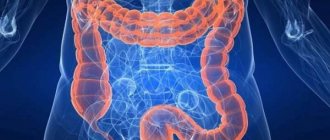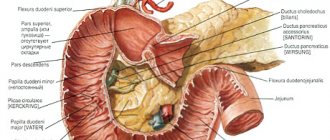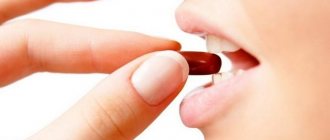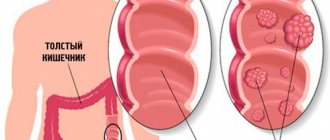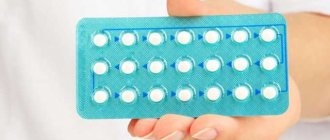Until recently, intestinal candidiasis was not such a common disease, however, in recent years it has affected more and more people in the world. One reason for this is the commonly used antibiotics prescribed by doctors as first-line drugs for various disease conditions. Symptoms of intestinal candidiasis may ultimately be too dangerous for the health of adults and children, which requires an adequate medical response and a properly selected treatment regimen for gastrointestinal mycosis.
Proper nutrition for intestinal candidiasis
Causes of candidiasis of the digestive tract
Oddly enough, the main culprit in the development of mycological infections is progress. Medicine is developing at a rapid pace, creating more and more advanced medicines.
But this is a double-edged sword. The invention of antibiotics in the middle of the last century saved millions of lives. But long-term drug treatment negatively affects any type of microbe, creating an imbalance of the microflora.
A holy place is never empty, and the vacated space is populated by colonies of fungi.
- The accumulation of microorganisms of this type is characterized by the formation of a whitish coating, for which it has received the popular nickname “thrush”.
- Hormonal imbalances are another cause of the disease. Pregnancy, menstruation, menopause, and taking contraceptives change hormonal levels, promoting the proliferation of fungal colonies and the formation of candidiasis in women.
- Metabolic disorders and endocrine diseases create favorable conditions for the development of fungal infections. In particular, with diabetes, sugar levels increase - this is the optimal breeding ground for microscopic fungus.
- An unbalanced diet, a passion for sweets and carbonated drinks is a direct path to intestinal thrush.
- A weakened immune system also promotes the proliferation of candida in the digestive system.
- At risk are cancer patients, HIV-infected people, patients suffering from allergies and autoimmune diseases.
- Particular attention should be paid to infants. Intestinal fungus causes diarrhea. Frequent loose bowel movements can cause death from dehydration in an infant.
Mechanism of development or pathogenesis and causes
Yeasts begin to multiply vigorously and create colonies under the influence of negative external factors or due to weak functionality of the immune system. Symbiotic bacteria (beneficial microorganisms) lose their ability to fully resist infection. As a result, a person develops candidiasis dysbiosis - an intestinal disease with vivid symptoms caused by a fungal disorder of the microflora.
Factors favorable for the development of intestinal fungus include:
- inability of the defense system to resist pathogens (reduced level of immunity);
- infectious diseases of a chronic nature;
- incorrect use of antibacterial drugs;
- disorders and restructuring of the endocrine system, such as diabetes mellitus, menopause, hypo/hyperthyroidism (pathological decrease or increase in thyroid hormones);
- unhealthy eating habits;
- chemotherapy;
- exacerbation of chronic gastrointestinal diseases.
In addition, the cause of fungal dysbiosis can be frequent manifestations of allergic reactions.
Thrush in the intestines: types of disease
Intestinal fungus actively develops when beneficial bacteria lose the ability to restrain its proliferation. The disease manifests itself in various forms:
- Non-invasive candidiasis is characterized by a general deterioration in health, diarrhea, and abdominal pain.
- Invasive intestinal candidiasis is a severe form of the disease. It is often a consequence of drug treatment with immunosuppressive drugs, glucocorticosteroids or cytostatics. This form of the disease is very rare, usually in patients with AIDS or cancer. Accompanied by diarrhea with bloody discharge and systemic damage to other organs: liver, kidneys, lungs, heart, eyes.
- Focal candidiasis is a consequence of duodenal ulcer. Occurs due to a violation of the integrity of the epithelium.
- Perianal candidodermatosis is a fungal infection of the anus. This occurs most often in homosexuals with AIDS.
What is intestinal candidiasis
A fungal infection localized in the human colon caused by mycosis of micromycetes of the genus Candida is called intestinal candidiasis (thrush). The cells of this yeast-like fungus attach to the mucous membrane, and then invade the organ tissue and spread throughout the body through the circulatory system, causing visceral candidiasis (infection of the liver and pancreas).
The causative agents of this disease - Candida albicans - in the plural are found in the external environment and in the body of a healthy person, therefore in medical terminology they are called opportunistic flora. The pathology is considered to be the indomitable growth of candida in the digestive tract. More often this occurs against the background of a decrease in human immunity. Invasive intestinal candidiasis is a severe form of dysbiosis and is rarely found in people with normally functioning immune systems.
The body’s protective function against the rapid proliferation of single-celled fungi Candida in the intestines is provided by:
- Integral intestinal mucosa.
- Normal microflora of the colon lumen with pronounced antagonistic properties to pathogenic flora.
- Digestive enzyme activity.
- Natural production of anti-candidiasis antibodies by beta cells of the pancreas.
Symptoms and features of the disease
It is not so easy to identify intestinal thrush and determine the symptoms. This task is for a specialist. But you should know the signs of intestinal candidiasis.
Disruption of the gastrointestinal tract with intestinal candidiasis is accompanied by pain in the abdomen and stomach, increased gas formation, and a frequent urge to defecate. The stool becomes liquid.
When defecating, discomfort occurs in the intestines. Blood and mucus appear in the stool. It is possible that white particles of a cheesy consistency may be present in the feces. There is a constant feeling of heaviness in the lower abdomen. Appetite decreases.
An experienced doctor can make a diagnosis based on history, but it is easy for a patient to confuse the symptoms of thrush with other gastrointestinal diseases.
A feature of candida in the intestines are the following symptoms:
- frequent, unformed stools;
- spasm and heaviness in the abdomen;
- a feeling of intestinal incomplete emptying during bowel movements.
Dermatological problems can serve as indirect signs of the disease. An experienced doctor will associate characteristic symptoms with the appearance of pimples and acne on the back and face.
A rash like urticaria, spots and other types of dermatitis accompanied by itching are likely to appear.
Patients often experience general weakness, decreased performance, a feeling of drowsiness, loss of appetite, sleep disturbances and increased irritability.
Symptoms of intestinal candidiasis
The pathogenic fungi Candida albicans infect the human intestinal mucosa and, in the process of their parasitic activity, release decay products that provoke a reaction in the human body in the form of symptoms of candidiasis. The main clinical manifestations of this disease include:
- chronic bloating (flatulence);
- feeling of heaviness in the stomach;
- intestinal spasms after eating, accompanied by attacks of pain;
- frequent painful bowel movements (diarrhea) that do not bring a feeling of relief;
- feces mixed with blood and pus, curdled, foul-smelling discharge;
- low-grade body temperature (37-37.5 °C);
- rash on the skin (sometimes);
- fatigue, lack of appetite;
- insomnia.
The disease rapidly progresses against the background of pathological proliferation of pathogenic fungi in the intestines. In the absence of appropriate treatment, the genitourinary system and oral cavity are affected. Genital candidiasis manifests itself in the form of the following symptoms:
- curdled discharge with an unpleasant odor;
- itching, burning in the genital area during urination, sexual intercourse and in their absence;
- cloudy urine with whitish sediment;
- menstrual irregularities in women;
- in severe forms of candidiasis – secondary infertility.
Diagnosis of gastrointestinal candidiasis
If persistent discomfort in the intestinal area occurs, you should seek help from a medical specialist.
The attending physician prescribes a comprehensive examination to clarify the diagnosis. Feces are examined in laboratory conditions for the composition of the intestinal microflora and bacterial culture is carried out to clarify the causative agent of the disease.
Blood sampling is carried out for analysis in order to detect candida antibodies and immunoglobulins. The final result will show the number of colonies of the pathogenic microorganism.
For dysbacteriosis studies, not only feces, but also urine are taken to identify or exclude the spread of infection in the small intestine and upper intestine.
The genus Candida has many varieties. For each pathogen, it is necessary to select the appropriate drug.
The full clinical picture can be revealed using endoscopic examination, histological analysis of internal tissues and blood testing for immune status.
You can conduct a preliminary mini-test for intestinal candidiasis yourself at home, which should not exclude a visit to the doctor.
After waking up in the morning, before brushing your teeth, you need to spit into a glass of clean drinking water. If after 30 minutes the spit sinks to the bottom, there is a high probability of an excessive number of candida colonies. If the spit remains on the surface or mixes with water, the cause of intestinal inflammation is different.
Treatment method
Self-diagnosis and self-treatment of digestive tract thrush is unacceptable. Only a doctor can decide how to treat intestinal candidiasis. There is no single recipe.
When selecting funds, it is necessary to take into account many factors: the general condition of the patient, the presence of systemic diseases, the severity of damage to the gastrointestinal tract by pathogenic microbes, height, weight, gender and even the age of the patient.
Intestinal fungus, depending on the symptoms, can be treated with different methods. The doctor prescribes a therapeutic course individually for each patient based on medical history and laboratory tests.
Antimycotic drugs are used in combination with immunocorrective agents.
For non-invasive forms of the disease, medications such as ketoconazole, itraconazole, and fluconazole are recommended. The drugs are taken topically, orally, or injected. The dosage and methods of administration are selected by a specialist.
To treat intestinal candidiasis, intravenous drug administration is used. The tablet form of drugs may not achieve the goal, being absorbed through the digestive tract prematurely.
Drugs for the treatment of candidiasis, such as nystatin, levorin, pimafucin, can cause allergic reactions, side effects, and, with long-term use, provoke toxic hepatitis.
Using these tablets in accordance with the recommendations of a specialist gives good results. They are even prescribed to pregnant women.
Ketoconazole, fluconazole, and intraconozole cope well with the fungus. The peculiarity of the drugs is their surface effect.
Pathogenic microflora is concentrated in the lumen and on the intestinal epithelium. Effective therapy requires drugs that are poorly absorbed. Their task is to penetrate into the lower intestines.
For the treatment of invasive candidiasis, agents exported into the systemic circulation are used. The combination of candidiasis with bacterial infections requires the use of antibacterial drugs.
Candidiasis is one of the manifestations of dysbiosis. Complex treatment involves the inclusion in the therapeutic course of drugs containing coli-, bifido- and lactobacilli. This promotes the formation of healthy intestinal microflora.
To improve the functioning of the digestive tract, the doctor may supplement treatment with simultaneous administration of pribiotics.
Antifungal drugs are always used in combination with vitamins or vitamin-mineral complexes in order to strengthen the body's immune defense.
The effectiveness of treatment increases with diet.
Causes
Intestinal candidiasis is one of the most pressing problems today, due to the fact that it often creates certain difficulties during diagnosis.
This is explained by the widespread prevalence of Candida fungi, which are found in the body of more than half of the entire population, including absolutely healthy representatives. Normal immunity protects a person from the development of this disease, and in almost every case of the disease, a decrease in immune defense is diagnosed in the patient’s body.
A number of reasons lead to a decrease in immunity. For example, if a person is often in stressful situations, the body involuntarily responds to this with recurring ailments that require treatment with antibacterial drugs. The immune system suffers from taking antibiotics, and the person gets sick again, being exposed to various infections or getting serious complications, which include intestinal candidiasis.
This is just one of the reasons for decreased immunity, and there are quite a few of them, such as the following:
- various types of allergies;
- immune disorders;
- congenital and acquired types of immunodeficiency conditions;
- chronic gastrointestinal diseases;
- physiological periods accompanied by changes in hormonal levels and decreased immunity (pregnancy, puberty, old age, etc.);
- conducting chemotherapy sessions and radiation therapy;
- poor nutrition leading to vitamin deficiencies.
Children under one year old get the disease of intestinal candidiasis through household or vertical methods, as well as as a result of not receiving the nutrients necessary for the body in the absence of breastfeeding.
Folk remedies against candidiasis
Traditional medicine for the treatment of intestinal thrush suggests a healthy lifestyle.
To maintain the balance of intestinal microflora, it is recommended to eat fresh wild berries: blueberries, blueberries, honeysuckle. Leafy vegetables, greens, cabbage have a beneficial effect on intestinal function.
Eating garlic daily reduces the risk of developing a fungal infection. Horseradish has a depressant effect on the fungus.
Oatmeal jelly has a good effect on the condition of the intestines.
Oatmeal jelly recipe for treating intestinal thrush
Oatmeal is placed in a glass jar (shoulder-deep) and filled to the top with water mixed with kefir and covered with gauze.
The container is placed in a warm place for 3 days. Then the liquid is drained and the sediment is placed in the refrigerator. To brew jelly, take 2-3 tablespoons of sediment, add 0.5 liters of water, bring to a boil and remove. The healing jelly is ready.
For intestinal fungus, take herbal infusions:
- oak bark;
- burnet and calendula;
- yarrow;
- chamomile;
- St. John's wort;
- sage
Before using traditional recipes in practice, you should consult your doctor.
Diet for gastrointestinal candidiasis
The process of treating gastrointestinal candidiasis is long and complex. The effectiveness of drug treatment can be enhanced by proper selection of food products.
A balanced diet inhibits the growth of fungus in the digestive system. It is necessary to reduce the number of sweet, starchy and yeast products in the diet, normalize the intake of proteins, carbohydrates, fats, vitamins and microelements.
When starting treatment, it is necessary to completely exclude citrus fruits, sour berries and fruits from the diet for a month. The list of undesirable foods includes fruits like bananas and grapes.
It is strictly forbidden to consume alcoholic beverages, fresh baked goods, honey and other sweets during treatment. The use of enzyme-containing products is not recommended.
Marinades, vinegar, nut oil, mushrooms, wheat germ, potatoes and sausages are contraindicated.
Gentle cooking methods are recommended for heat treatment of products: boiling, steaming, stewing.
Prevention of fungal diseases of the intestines
Fungal diseases are difficult to treat. It is easier to follow preventive measures to prevent intestinal pathology.
It is necessary to treat diseases of the digestive system, follow a diet, avoid long-term use of antibiotics, use purified water for drinking, avoid prolonged exposure to damp areas, avoid synthetic clothing, wear cotton underwear, change your toothbrush monthly, strengthen the immune system by hardening the body and taking vitamins.
